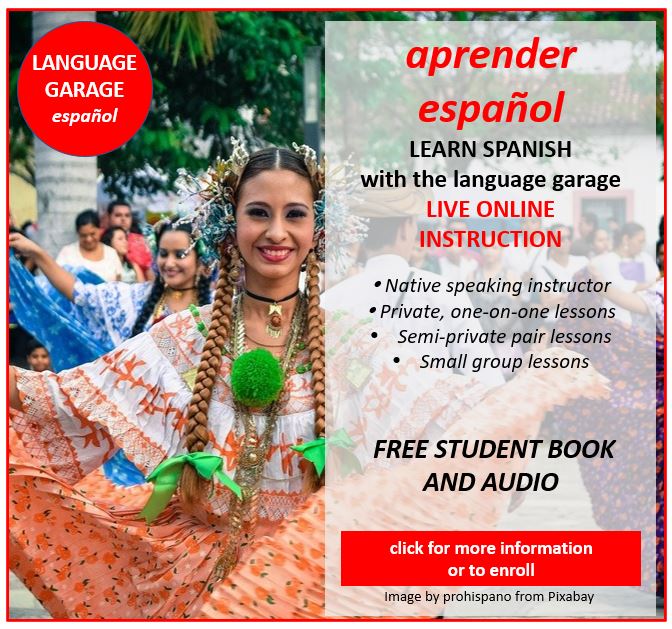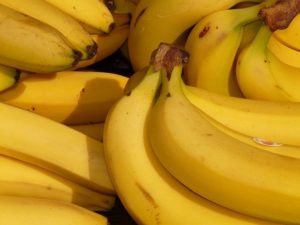Image: Pexels on Pixabay
In this post we’ll take a look at Spanish vocabulary, expressions, and grammar related to talking about what you like, what you find interesting, and what you’re really into doing.
Me gusta el chocolate. I like chocolate.
If you’re talking about things or people that you like, use the verb gustar. But you, as the liker, are not the subject. The thing you like is the subject (of gusta if it’s singular, gustan if it’s plural) and the liker is the indirect object, expressed with me (to me), te (to you), le (to him/her), nos (to us), or les (to them). You can also use the expression caer bien (literally, to fall well) to express fondness.
- Me gusta el chocolate/la vainilla.
I like chocolate/vanilla. - Me gustan los libros/las películas.
I like books/movies. - ¿Te gusta la comida Thai?
Do you like Thai food?
- A él le gustan los hongos/las cebollas/el ajo.
He likes mushrooms/onion/garlic. - A ella le gusta esta canción.
She likes this song. - A los niños les gusta su nuevo profesor/nueva profesora.
The kids like their new teacher. - Me gusta este/esta cantante. ¿A ti te gusta este/esta cantante?
I like this singer. Do you like this singer? - Me gusta tu hermano/hermana/amigo/amiga.
I like your brother/sister/friend. - Me cae bien tu hermano/hermana/amigo/amiga.
I’m fond of your brother/sister/friend.
Me gustan más los perros que los gatos. I like dogs more than cats.
If you want to say that you like A more than B, use the verb preferir to prefer, as in preferir X a Y to like X more than Y / to prefer X over Y. You can also use gustar with más (more).
- Prefiero chocolate.
I prefer chocolate. - Me gusta más el chocolate que la vainilla.
I like chocolate more than vanilla. - Me gustan más los perros que los gatos.
I like dogs more than cats. - Prefiero a los perros.
I prefer dogs. - A nosotros nos gusta más la pizza que la pasta.
We like pizza more than pasta. - Preferimos la comida Thai.
We prefer Thai food.
Me gusta cocinar. I like to cook.
If you’re talking about things that you like to do, use the construction gustar + infinitive.
- Me gusta leer/viajar/ver televisión.
I like to read/travel/watch TV. - Me gusta aprender idiomas.
I like to learn languages. - Me gusta andar en bicicleta/nadar/ir de excursión.
I like to ride my bike/swim/go hiking. - A ella le gusta hacer ejercicio en la mañana.
She likes to work out in the morning. - A él le gusta dormir hasta tarde los domingos.
He likes to sleep late on Sundays. - A nosotros nos gusta ver películas juntos/juntas.
We like to watch movies together. - A ellos les gusta discutir sobre política.
They like to argue about politics. - ¿Qué te gusta hacer?
What do you like to do? - ¿A dónde te gusta ir de vacaciones?
Where do you like to go on vacation? - ¿Qué tipo de películas te gusta ver?
What kind of movies do you like to watch? - ¿Qué tipo de comida te gusta (comer)?
What kind of food do you like (to eat)?
Me encanta la ciencia ficción. I love science fiction.
If you really like or love something, use the verb encantar. The grammar is similar to gustar: me encanta… me encantan… You can also use gustar mucho, which is not quite as strong.
- Me encantan/Me gustan mucho los perros/los gatos/los animales.
I love/really like dogs/cats/animals. - Me encanta/Me gusta mucho el tiempo cálido/la nieve.
I love/really like warm weather/snow. - Me encanta/Me gusta mucho la comida etíope.
I love/really like Ethiopian food. - A él le encanta/A él le gusta mucho la música clásica.
He loves/really like classical music. - A ella le encantan/A ella le gustan mucho los videojuegos.
She loves/really like video games.
Me fascina este nuevo restaurante. I’m mad about this new restaurant.
Some idiomatic expressions that you can use to talk about what you really use fascinar, volver loco, or flipar con.
- Me vuelve loco/loca esta tienda/este restaurante.
Me fascina esta tienda/este restaurante.
Flipo con esta tienda/este restaurante.
I’m mad about this store/restaurant. - A ella le fascina su carro nuevo.
A ella la vuelve loca su carro nuevo.
She’s nuts about her new car. - A él le gusta mucho ir de excursión/esquiar/correr.
Él es muy fan de ir de excursión/esquiar/correr.
He’s really into hiking/skiing/running. - Soy muy fan de acampar.
Me gusta mucho acampar.
I’m really into camping. - A él lo vuelven loco las motocicletas.
Él flipa con las motocicletas.
He’s crazy about motorcycles.
Quiero a mi madre. I love my mother.
To talk about loving a person in a non-romantic way, use the verb querer. Amar also means love, but it’s usually more of a passionate kind of love. Still, you may hear some people using it to express non-romantic love.
- Quiero a mi madre/padre.
Amo a mi madre/padre.
I love my mother/father. - Ellos quieren a sus nietos.
Ellos aman a sus nietos.
They love their grandchildren. - Él quiere a su hermana.
Él ama a su hermana.
He loves his sister. - Ella quiere a sus amigos.
Ella ama a sus amigos.
She loves her friends.
Te amo. Te quiero. I love you.
If you want to express more of a romantic love, use the verb amar. But again, you’ll hear querer (mucho) used to express romantic love as well.
- Te amo.
Te quiero.
I love you. - Amo a mi esposa.
I love my wife. - Amo a mi esposo.
I love my husband. - Ellos/Ellas se aman.
Ellos/Ellas se quieren mucho.
They love each other very much.
Los idiomas son interesantes. Languages are interesting.
There are all sorts of other ways to express that you like something. And you can probably guess that many Spanish expressions vary a lot from country to country. For example, some regional expressions that mean cool are: chévere (in the Caribbean), guay (in Spain), chido (in Mexico), bacán (in Colombia), and so on.
- Este libro es muy bueno / chévere / guay / chido / bacán.
This book is really good/cool. - Los idiomas son interesantes.
Languages are interesting. - A mí los libros/los idiomas/las películas me parecen/me resultan interesantes.
I find books/languages/films interesting. - Creo que los libros son más interesantes que las películas.
I think that books are more interesting than films. - Esquiar es emocionante. Esquiar me parece/me resulta emocionante.
Skiing is exciting. I find skiing exciting. - Viajar es fantástico. Creo que viajar es fantástico
Traveling is fascinating. I think traveling is fascinating. - Andar en bicicleta es divertido. Disfruto mucho andar en bicicleta.
Biking is fun. I really enjoy biking. - Las películas son entretenidas/interesantes.
Films are entertaining/interesting. - Esta escritora es asombrosa. Sus libros son increíbles.
This writer is amazing. Her books are incredible. - Este restaurante es genial. La comida aquí es exquisita/deliciosa.
This restaurant is great. The food here is exquisite/delicious.
Learn Spanish with the Language Garage!
Interested in more Spanish? Check out our other posts on Spanish language, culture, and more. If you’re looking for convenient and affordable live Spanish lessons with a real teacher, visit The Language Garage. Our lessons are affordable and fun, and they’re given online in a virtual classroom, so it doesn’t matter where you live or work – we can come to you. We have flexible options, with a free trial so that you can decide if there’s a fit. Check us out!





